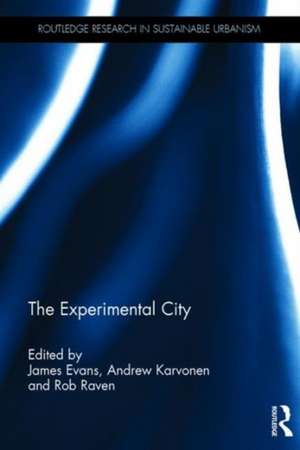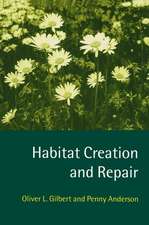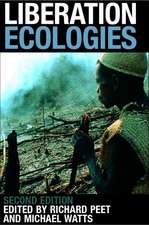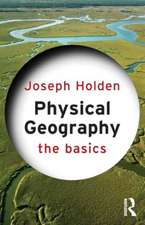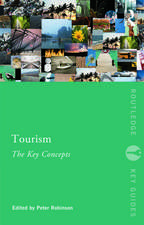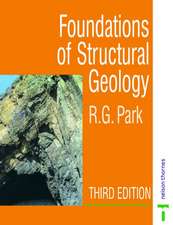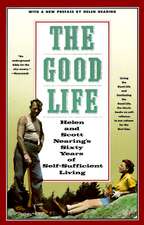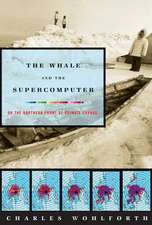The Experimental City: Routledge Research in Sustainable Urbanism
Editat de James Evans, Andrew Karvonen, Rob Ravenen Limba Engleză Hardback – 16 mai 2016
With contributions from leading scholars, and case studies from the Global North and South, from small to large scale cities, this book suggests that urban experiments offer novel modes of engagement, governance, and politics that both challenge and complement conventional strategies. The book is organized around three cross-cutting themes. Part I explores the logics of urban experimentation, different approaches, and how and why they are deployed. Part II considers how experiments are being staged within cities, by whom, and with what effects? Part III examines how entire cities or groups of cities are constructed as experiments.
This book seeks to contribute a deeper and more socially and politically nuanced understanding of how urban experiments shape cities and drive wider changes in society, providing a framework to examine the phenomenon of urban experimentation in conceptual and empirical detail.
| Toate formatele și edițiile | Preț | Express |
|---|---|---|
| Paperback (1) | 445.56 lei 6-8 săpt. | |
| Taylor & Francis – 21 iun 2017 | 445.56 lei 6-8 săpt. | |
| Hardback (1) | 768.30 lei 6-8 săpt. | |
| Taylor & Francis – 16 mai 2016 | 768.30 lei 6-8 săpt. |
Preț: 768.30 lei
Preț vechi: 1029.81 lei
-25% Nou
Puncte Express: 1152
Preț estimativ în valută:
147.03€ • 152.57$ • 122.89£
147.03€ • 152.57$ • 122.89£
Carte tipărită la comandă
Livrare economică 15-29 martie
Preluare comenzi: 021 569.72.76
Specificații
ISBN-13: 9781138856202
ISBN-10: 1138856207
Pagini: 280
Ilustrații: 68
Dimensiuni: 156 x 234 x 18 mm
Greutate: 0.68 kg
Ediția:1
Editura: Taylor & Francis
Colecția Routledge
Seria Routledge Research in Sustainable Urbanism
Locul publicării:Oxford, United Kingdom
ISBN-10: 1138856207
Pagini: 280
Ilustrații: 68
Dimensiuni: 156 x 234 x 18 mm
Greutate: 0.68 kg
Ediția:1
Editura: Taylor & Francis
Colecția Routledge
Seria Routledge Research in Sustainable Urbanism
Locul publicării:Oxford, United Kingdom
Public țintă
Postgraduate and UndergraduateCuprins
1. The experimental city: new modes and prospects of urban transformation
PART I: LOGICS OF EXPERIMENTATION
2. Experiments in the city: unpacking notions of experimentation for sustainability
3. Cities, experiments, and the logics of the knowledge economy
4. The urban laboratory and emerging sites of urban experimentation
5. Virtual city experimentation: a critical role for design visioning
6. The boundaries of experimentation in sustainable urbanism
7. Cabin ecologies: the technoscience of integrated urban infrastructure
PART II: EXPERIMENTING IN CITIES
8. Green enclaves, neoliberalism and the constitution of the experimental city in Santiago de Chile
9. Urban mobility experiments in India and Thailand
10. Urban science networks and local economy: the case of Newcastle upon Tyne
11. Grassroots experimentation: alternative learning and innovation in the Prinzessinnengarten, Berlin
12. Living labs: users, citizens and sustainable urban transitions
PART III: EXPERIMENTAL CITIES
13. Turning over a new leaf: sustainability and urban experimentation in Seoul
14. Frankenstein cities: (de)composed urbanism and experimental eco-cities
15. Experimental afterlives: making and unmaking developmental laboratories in Ghana
16. The glorious failure of the experimental city: cautionary tales from Arcosanti and Masdar
17. Post carbon cities: distributed and decentralized and demodernized?
PART I: LOGICS OF EXPERIMENTATION
2. Experiments in the city: unpacking notions of experimentation for sustainability
3. Cities, experiments, and the logics of the knowledge economy
4. The urban laboratory and emerging sites of urban experimentation
5. Virtual city experimentation: a critical role for design visioning
6. The boundaries of experimentation in sustainable urbanism
7. Cabin ecologies: the technoscience of integrated urban infrastructure
PART II: EXPERIMENTING IN CITIES
8. Green enclaves, neoliberalism and the constitution of the experimental city in Santiago de Chile
9. Urban mobility experiments in India and Thailand
10. Urban science networks and local economy: the case of Newcastle upon Tyne
11. Grassroots experimentation: alternative learning and innovation in the Prinzessinnengarten, Berlin
12. Living labs: users, citizens and sustainable urban transitions
PART III: EXPERIMENTAL CITIES
13. Turning over a new leaf: sustainability and urban experimentation in Seoul
14. Frankenstein cities: (de)composed urbanism and experimental eco-cities
15. Experimental afterlives: making and unmaking developmental laboratories in Ghana
16. The glorious failure of the experimental city: cautionary tales from Arcosanti and Masdar
17. Post carbon cities: distributed and decentralized and demodernized?
Notă biografică
James Evans is a Professor of Geography at the School of Environment, Education and Development, University of Manchester, UK.
Andrew Karvonen is Lecturer in Architecture and Urbanism at the University of Manchester, UK and co-director of the Centre for Urban Resilience and Energy.
Rob Raven is Professor of Institutions and Transitions at Utrecht University, the Netherlands.
Andrew Karvonen is Lecturer in Architecture and Urbanism at the University of Manchester, UK and co-director of the Centre for Urban Resilience and Energy.
Rob Raven is Professor of Institutions and Transitions at Utrecht University, the Netherlands.
Recenzii
"If the much talked about politics of green transformations during the post-2009 era is to be more than another fad, it will have to find traction in the world’s cities where the majority of the population now lives. This book convincingly argues that this is starting to happen as ‘urban experiments’ mushroom across the global regions of the world. This first provocative review of the evolutionary potential of these actually existing processes of change starts off in Chapter 2 with a remarkably useful definition of ‘urban experimentation’ that is then explored by people from many different disciplines and perspectives. The analyses emerging from this book raise the possibility that ‘urban experimentation’ may well be the emergent mode of governance that replaces both bureaucratic managerialism and the business-led public-private partnerships that underpinned neo-liberal corporatism and splintered urbanism. Entrepreneurs, innovators and knowledge networks become the new players in a world where cities become laboratories for the future." Professor Mark Swelling, Distinguished Professor of Sustainable Development in the School of Public Leadership, Stellenbosch University, South Africa.
"Students, researchers and practioners will find inspiration in this text from the extremely clear and succinct theorisations in section one, the illustrative case studies in section two and the insightful reflections in section three. While undoubtedly the collection reveals conceptual and empirical gaps in the field, this in itself is also productive in suggesting new directions for research and understanding." – Robert Shaw, Newcastle University, UK
"Students, researchers and practioners will find inspiration in this text from the extremely clear and succinct theorisations in section one, the illustrative case studies in section two and the insightful reflections in section three. While undoubtedly the collection reveals conceptual and empirical gaps in the field, this in itself is also productive in suggesting new directions for research and understanding." – Robert Shaw, Newcastle University, UK
Descriere
This book explores how the concept or urban experimentation is being used to reshape practices of knowledge production in urban debates about resilience, climate change governance, and socio-technical transitions.
With contributions from leading scholars, and case studies from the Global North and South, from small to large scale cities, this book suggests that urban experiments offer novel modes of engagement, governance, and politics that both challenge and complement conventional strategies. The book is organized around three cross-cutting themes. Part I explores the logics of urban experimentation, different approaches, and how and why they are deployed. Part II considers how experiments are being staged within cities, by whom, and with what effects? Part III examines how entire cities or groups of cities are constructed as experiments.
This book seeks to contribute a deeper and more socially and politically nuanced understanding of how urban experiments shape cities and drive wider changes in society, providing a framework to examine the phenomenon of urban experimentation in conceptual and empirical detail.
With contributions from leading scholars, and case studies from the Global North and South, from small to large scale cities, this book suggests that urban experiments offer novel modes of engagement, governance, and politics that both challenge and complement conventional strategies. The book is organized around three cross-cutting themes. Part I explores the logics of urban experimentation, different approaches, and how and why they are deployed. Part II considers how experiments are being staged within cities, by whom, and with what effects? Part III examines how entire cities or groups of cities are constructed as experiments.
This book seeks to contribute a deeper and more socially and politically nuanced understanding of how urban experiments shape cities and drive wider changes in society, providing a framework to examine the phenomenon of urban experimentation in conceptual and empirical detail.
